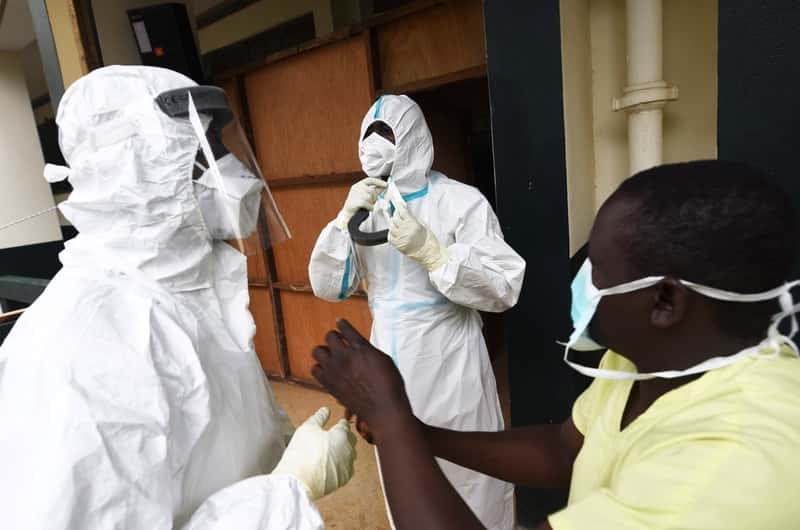×
The Standard e-Paper
Fearless, Trusted News

Doctors treating COVID-19 patients in Sierra Leone went on strike on Thursday over unpaid bonuses, leaving patients in some of the main treatment centres without care, health workers said.
The strike marks an escalation in a row between doctors and government over what doctors say is a misuse of funds for the coronavirus response in the small West African country and a lack of protection and compensation for health workers.